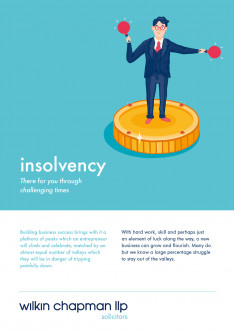Insolvency happens when a company is unable to pay its debts on their due dates or has insufficient assets available to cover the total of their debts.
It is the director’s responsibility to recognise when a company has become insolvent, and they can be held legally responsible for allowing the company to continue to trade if it is indeed insolvent.
Choosing the best process for you
There are many procedures available to insolvent companies and choosing the right option for you and your business is critical. For example: Administration, Administrative Receivership and a Company Voluntary Agreement (CVA) are all solutions that offer potential rescue for the business.
It is often preferable for a company to continue trading using one of these processes in order to preserve the company’s value and retain its existing customer base.
Liquidation
If your business cannot be rescued, then it will be placed in to liquidation. This process involves your company’s remaining assets being turned into cash and distributed amongst creditors. This solution often results in the termination of the company’s trading activities.
The insolvency processes can be initiated by any single creditor or group of creditors. It can be initiated by the courts and lending institutions, or by directors and shareholders of your company.
The aim of any of the insolvency procedures is to extract the greatest value out of the company for the benefit of its creditors. The individual circumstances of the business and the total available assets will determine which process is best suited to achieve this aim.













